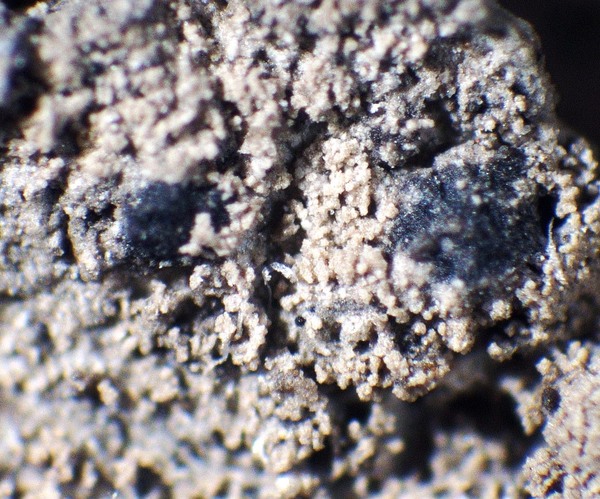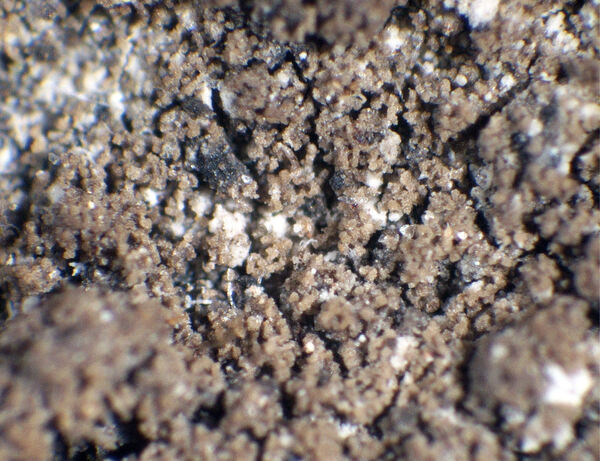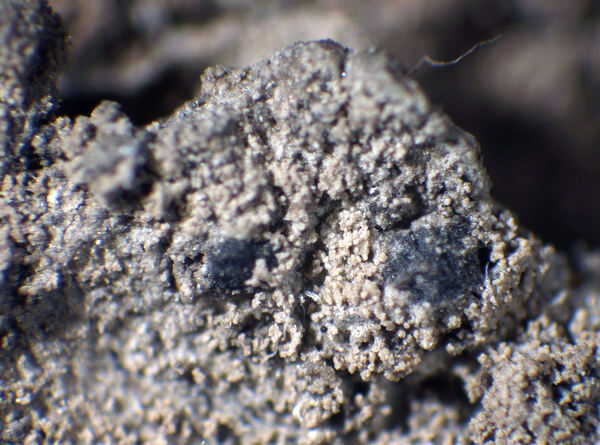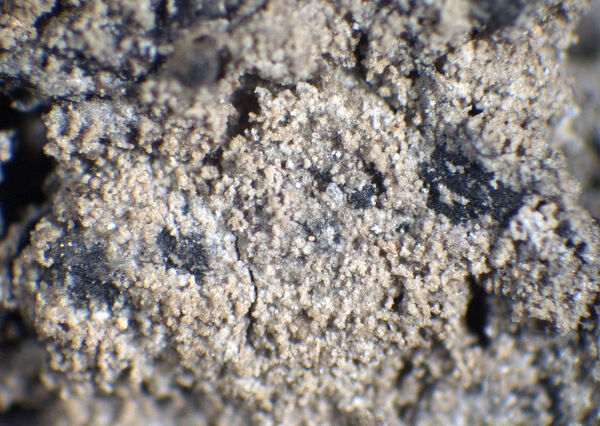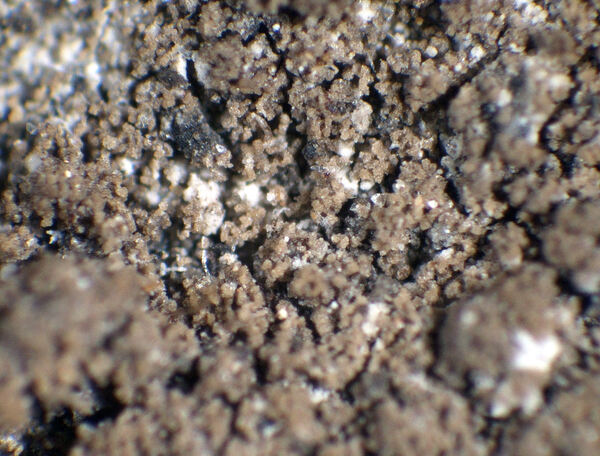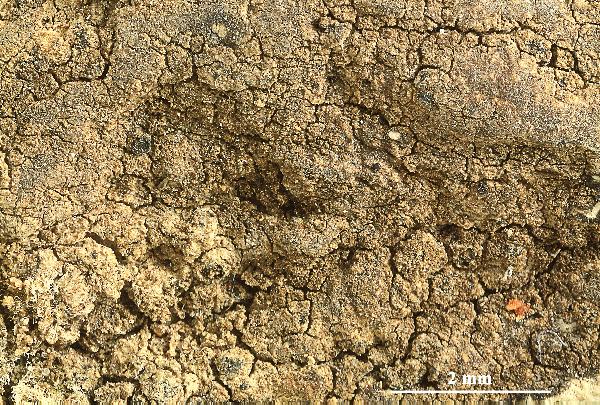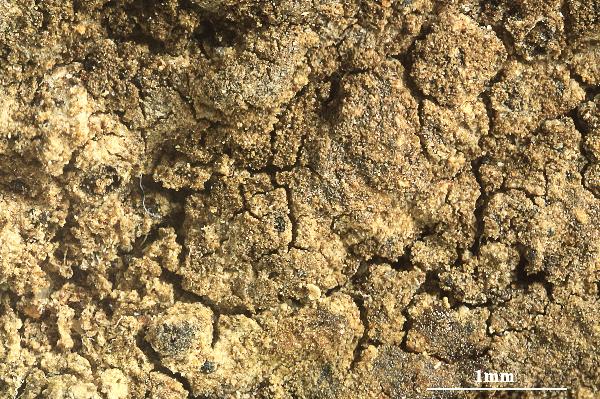Porina hibernica P. James & Swinscow
Lichenologist, 2: 35, 1962.
Synonyms: Zamenhofia hibernica (P. James & Swinscow) Clauzade & Cl. Roux
Distribution: S - Si (Nimis & al. 1994, Tretiach 2014).
Description: Thallus crustose, thinly episubstratic or hemiendosubstratic, grey-green to pale grey-orange, isidiate. Isidia dull orange, at first subglobose, then cylindrical and branched, 43-60(-82) μm thick, fragile, sometimes forming dense coralloid mats. Perithecia rather rare, black, 0.5-0.7 mm across, semi-immersed in thallus and substratum, but not covered by a thalline layer. Involucrellum contiguous with the exciple and extending to exciple-base level, brown to black, K+ greenish blue to blackish, S+ purple-red, N+ orange to reddish brown; exciple thin, pale yellow; hamathecium of periphyses and of simple, filiform, numerous, persistent, c. 1 μm thick paraphyses; hymenial gel I-, K/I-. Asci 8-spored, clavate-cylindrical, thin-walled, functionally unitunicate, I-, K/I-, the apex rounded and without a ring structure. Ascospores (7-)12-16(-17)-septate, hyaline, fusiform, (55-)60-90(-95) x 5-7(-8) μm, with a distinct perispore at least when young. Photobiont trentepohlioid. Spot tests: thallus K-, C-, KC-, P-, UV-. Chemistry: thallus without lichen substances.Note: a Mediterranean-Atlantic lichen found on ancient trunks, e.g. of Quercus ilex, in shaded-humid situations, especially in humid forests. It is included as “Critically Endangered” in the Italian red list of epiphytic lichens (Nascimbene & al. 2013c).
Growth form: Crustose
Substrata: bark
Photobiont: Trentepohlia
Reproductive strategy: mainly asexual, by isidia, or isidia-like structures (e.g. schizidia)
Most common in areas with a humid-warm climate (e.g. most of Tyrrenian Italy)
Commonnes-rarity: (info)
Alpine belt: absent
Subalpine belt: absent
Oromediterranean belt: absent
Montane belt: absent
Submediterranean belt: absent
Padanian area: absent
Humid submediterranean belt: absent
Humid mediterranean belt: extremely rare
Dry mediterranean belt: absent
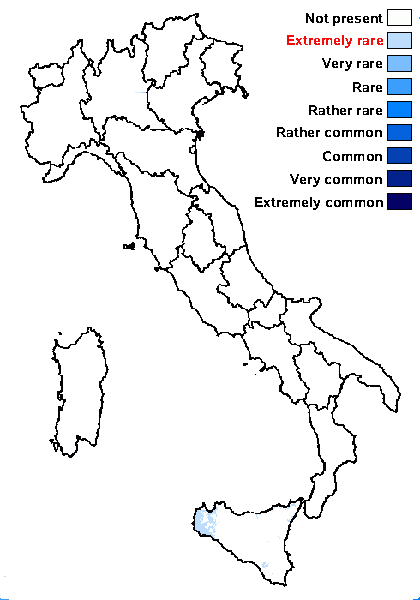
Predictive model
Herbarium samples
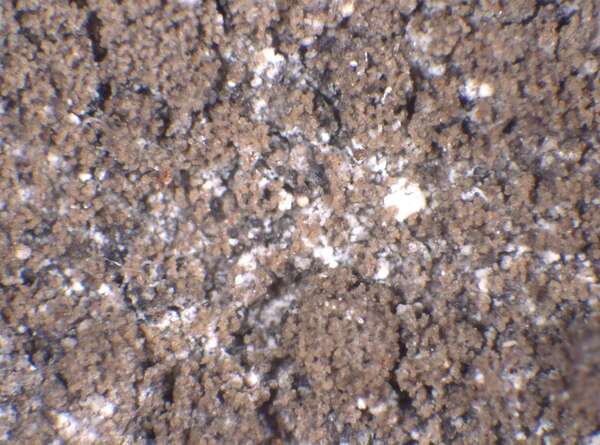

P.L. Nimis; Owner: Department of Life Sciences, University of Trieste
Herbarium: TSB (15811)
2003/03/12
sterile thallus
Growth form: Crustose
Substrata: bark
Photobiont: Trentepohlia
Reproductive strategy: mainly asexual, by isidia, or isidia-like structures (e.g. schizidia)
Most common in areas with a humid-warm climate (e.g. most of Tyrrenian Italy)
Commonnes-rarity: (info)
Alpine belt: absent
Subalpine belt: absent
Oromediterranean belt: absent
Montane belt: absent
Submediterranean belt: absent
Padanian area: absent
Humid submediterranean belt: absent
Humid mediterranean belt: extremely rare
Dry mediterranean belt: absent

Predictive model
| Herbarium samples |


 INDEX FUNGORUM
INDEX FUNGORUM
 GBIF
GBIF
